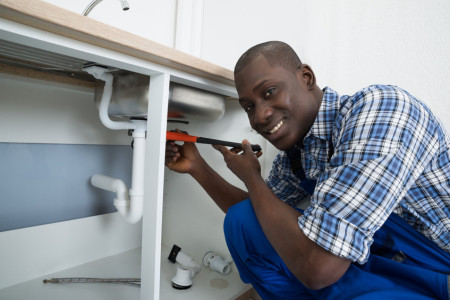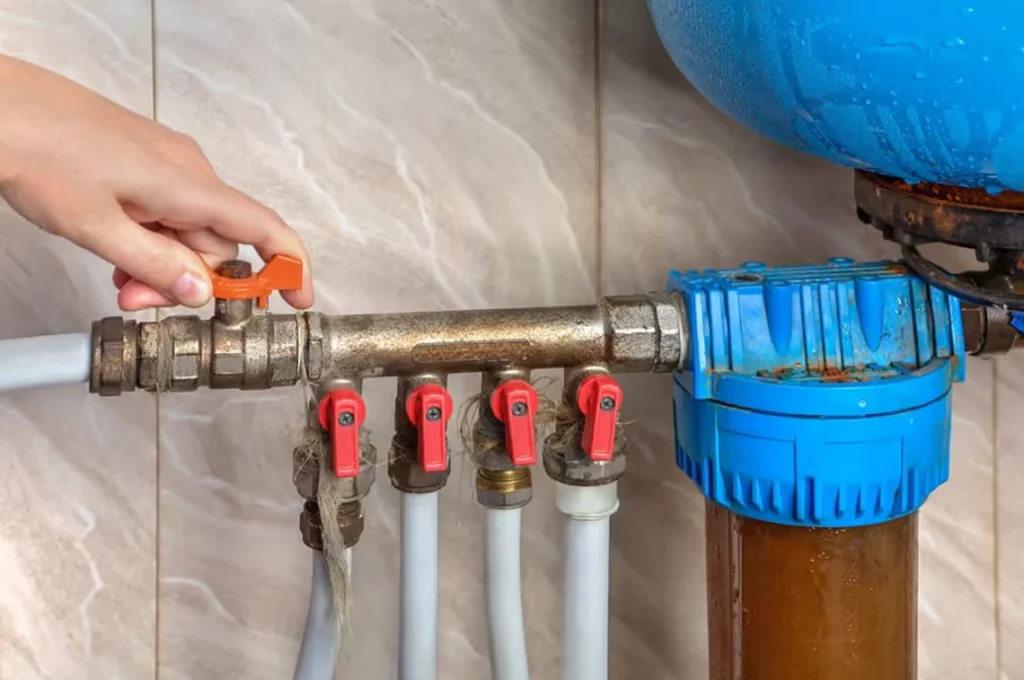Emergency Plumbing Fixes to Apply Until Specialist Help Arrives
Emergency Plumbing Fixes to Apply Until Specialist Help Arrives
Blog Article
The author is making several good pointers regarding Plumbing Emergencies: Tips on What To Do Before overall in this article below.

Plumbing emergency situations can strike at any moment, causing stress and anxiety and prospective damage to your home. Whether it's a burst pipe, a clogged up drainpipe, or a leaky tap, understanding just how to manage the scenario until a specialist plumbing technician shows up can save you from more complications. This post provides crucial emergency situation plumbing pointers to assist you mitigate damages and restore control throughout a plumbing situation.
Shut off the Water Supply
The primary step in any pipes emergency is to turn off the water supply. For local issues, such as a dripping faucet or commode, turn off the shutoff near the fixture. When it comes to a major leak or ruptured pipe, locate your home's major water shut-off valve and transform it off promptly. Knowing the area of these valves beforehand can conserve important time throughout an emergency situation.
Address Small Leakages with Short-term Solutions
Little leaks can swiftly become substantial issues if left unchecked. Make use of these short-term repairs until expert help arrives:
While these repairs aren't permanent, they can aid reduce water loss and damages.
Unclog Drains Pipes Safely
A stopped up drain can be an irritating and untidy concern. Right here's just how to tackle it:
If these techniques do not work, stay clear of using extreme pressure, as it may aggravate the clog.
Manage Overflowing Toilets
An overflowing commode can cause prompt chaos. Right here's what you need to do:
Shut Off Your Water Heater
In specific emergency situations, such as a burst pipe, it's important to shut down your water heater. This stops getting too hot or damage to the unit when water quits moving. Turn off the power supply to the water heater (electrical or gas) and allow it cool down to avoid prospective threats.
Temporarily Stop a Burst Pipeline
A ruptured pipeline can lead to considerable water damages in mins. To minimize the concern:
Call an expert plumbing professional immediately to address the issue permanently.
Deal With Frozen Pipeline Very Carefully
In chillier environments, icy pipelines are an usual emergency situation. If you presume an icy pipeline:
Protect against Additional Damage
Taking quick action to minimize damages can conserve you money and time over time. Here's how:
. Have an Emergency Pipes Set
Prepare a basic plumbing emergency situation set to handle small problems properly. Your set should consist of:
Having these devices handy can make a significant distinction in your ability to take care of emergency situations.
Know When to Call a Professional.
While quick fixes can assist temporarily, particular plumbing concerns require instant professional focus. Call a plumbing technician if:.
Promptly speaking to a professional makes certain the issue is settled properly and protects against further difficulties.
Conclusion.
Plumbing emergency situations can be overwhelming, yet with the right knowledge and devices, you can manage the circumstance properly until assistance gets here. By turning off the water system, addressing little leakages, and using short-term solutions, you can minimize damage and maintain your home safe. Bear in mind, these tips are momentary remedies; always speak with an accredited plumbing technician to take care of the root cause of the issue. Prep work and quick thinking are your best allies in any kind of plumbing emergency situation.
8 Helpful Tips for Managing Plumbing Emergencies at Home
If your plumbing system hasn’t failed once, wait for it because almost everyone has a story to tell. Sometimes, it could be simple emergencies such as a leaking pipe, a blocked cistern, or even a big burst pipe. In situations like this, you need to have some handy tips to save you some money and from possible damages.
Take care of minor issues early.
Sometimes, you could have avoided an emergency by taking proactive measures while it was still early. Some major plumbing emergencies can be a result of an ignored minor issue. We recommend that you have items like plumbing tapes and other related items. A plumbing tape can allow you to manage minor leaks before the plumber arrives.
Cut off the water supply.
This tip is essential in almost any type of leakage problem. For problems like minor leakages in the toilet or kitchen, turn off the supply that takes water to the affected pipes. If the leakage is a major pipe, you must shut off the supply valve to the entire building. This will help you avoid flooding your home and neighbors if you share a flat.
Know your plumbing system
Folks typically move into a new apartment without understanding the water supply around the building. This can prove disastrous if a water emergency arises and the plumber is far away. The previous tip will prove useless if you don’t practice this one. More importantly, know where your water shut-off valve is located – you’ll need that knowledge to prevent potential home floods.
Have some common handy tools
There are lots of plumbing emergencies that you can handle without hiring a plumber. That’s why you must keep some tools available always. Some tools that you can use to fix simple plumbing emergencies easily include plumbing tapes, screwdrivers, thread seal tapes, plungers, pliers, tape measures, and rubber gloves.
Insulate your pipes from cold
You’ll save yourself from many plumbing expenses if you protect your water pipes from the cold. This is because of the harmful effects that cold weather can have on your pipes. During winter, your pipes can burst from being overly expected to freezing temperatures. So, make sure insulators are there to keep the pipes working correctly.
Avoid practices that will clog your toilet.
Many people indulge in practices that can damage the plumbing system of the entire building. One of these is when they use their toilet to dispose-off garbage. They flush all kinds of things, such as paper towels, bandages, hairs, female sanitary products, etc., down the toilet. This will block your toilet in the long run, incurring unnecessary expenditures. Dump such waste in the trash instead.
Check your dials regularly.
Sometimes, there could be leakages in your home without noticing them in time. So, constantly monitor your water meter dial. If the dial is reading when there is nobody using water, this is an indicator that there is leaking. Check for leaks immediately. Call a plumber as soon as possible if you can’t find any.
https://www.constructionplacements.com/8-helpful-tips-for-managing-plumbing-emergencies-at-home/

I discovered that page on What to Do While Waiting for an Emergency Plumber while surfing the web. Do you know somebody who is inquisitive about the topic? Please feel free to share it. Thank-you for going through it.
Schedule A Service Call Report this page